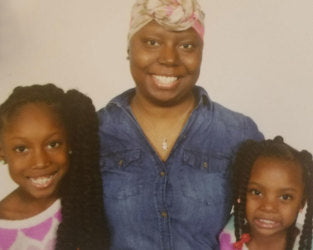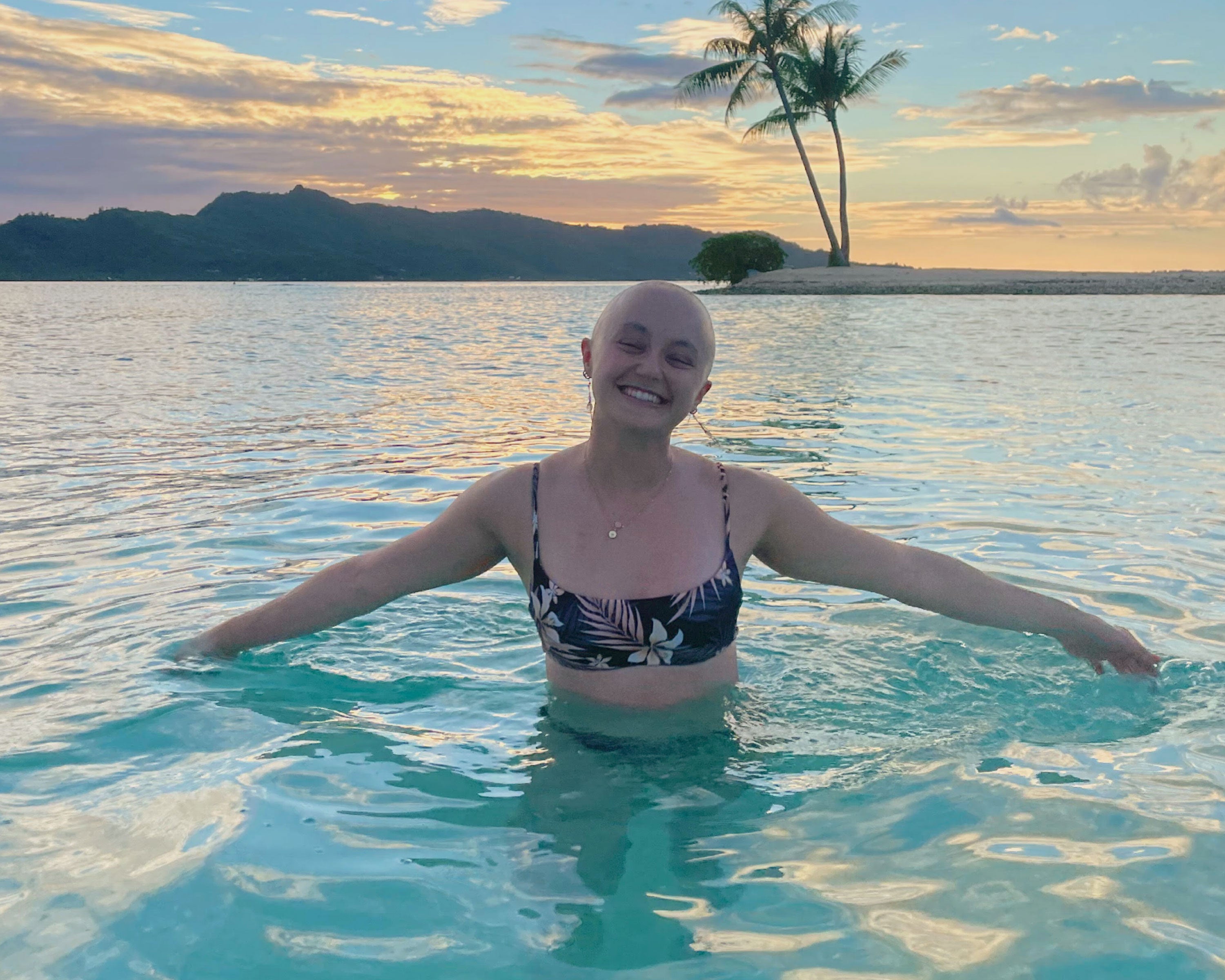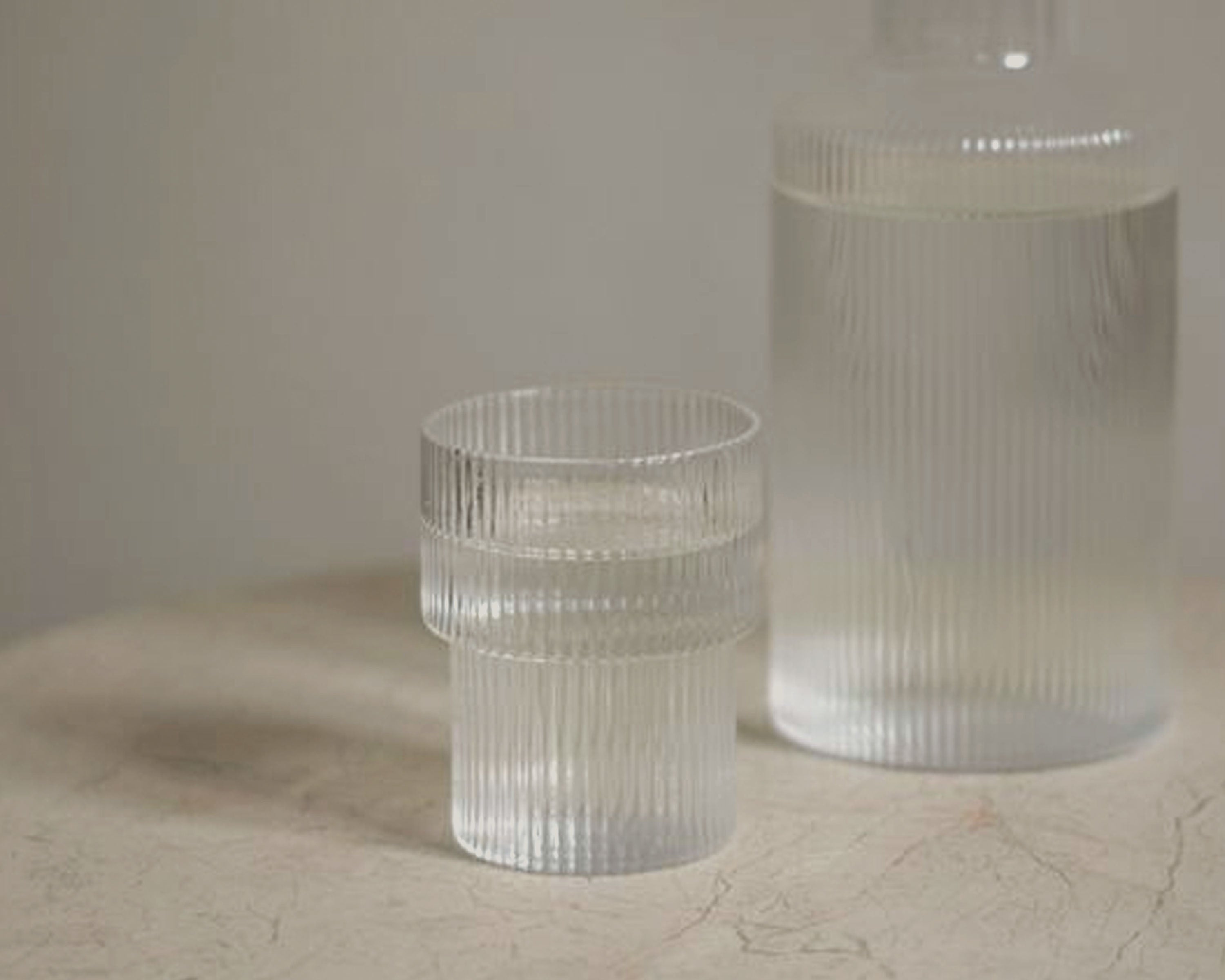Real Talk
Navigating Dating, Body Image, and Single Motherhood After a Breast Cancer Diagnosis
By Keyana Williams
Share
The day my sister was getting married, I felt a lump, but it wasn't in my breasts — it was in my underarm. I told myself it was probably a swollen gland, maybe because I was on my cycle, and that it would go away. Two weeks later, when the lump was still there, I went to the doctor to get it checked out. I was sent for a mammogram and an ultrasound, and then a biopsy, and was diagnosed with breast cancer in August of 2016. I was 31 at the time.
I got the news over the phone, and immediately my mind flashed to my kids. I have two little girls (who were 3 and 6 at the time), and all I could think about was them and what would happen to them. As a single mother, you can't help but to go there in your mind. The blessing was that I had recently moved in with my mom, and looking back, there is no way I could’ve gotten through this experience without her support.
Doctors told me I was a “complicated” case. My treatment involved five months of chemotherapy followed by surgery. I had to have a double mastectomy and elected to have a full hysterectomy because it turned out that I had the carrier gene for ovarian cancer and I didn’t want to risk it. After the mastectomy, I started reconstructive surgery, which involved the (painful) use of tissue expanders to expand the breast tissue before the implants were placed. In the middle of that process, my doctors told me they wanted me to do six weeks of radiation as a precaution. So they had to deflate and remove my expanders until I could resume reconstructive surgery. All in all, from the initial diagnosis until the end of treatment and reconstruction, the whole journey took almost a year.
I recently celebrated four years cancer-free. And while I’m grateful to be where I am today, cancer left a mark on so many aspects of my life. Here’s how it impacted motherhood, my body image, and my mental health:
On coping with depression and anxiety...
Chemo hit me very hard. I would get very sick, not be able to keep any food down (most days I subsisted on Boost, a nutritional shake), and just when I started to feel a little better, I had to begin the next chemo cycle. Knowing what was coming and how bad I was going to feel contributed to my anxiety and depression. There were moments when I wanted to give up.
I trusted my doctors, but my mind still went to the dark places, like, “what if they don't get all the cancer out during surgery?” “Will it come back.”
My doctor prescribed me an anti-anxiety medication but it can take a while for those to get through your system and start working. And although medications can really help people, the list of drugs I had to be on was already so long and I didn’t want to add another to the mix. I decided to give counseling a try instead.
I found my counselor through an organization called Cancer Family Care. I got to talk through my feelings, get guidance, and be vulnerable — something I have a hard time doing with other people. I was able to discuss my big fears (like not surviving) and the everyday fears (like figuring out how my children would get to school and daycare and who would cook for them). I also had feelings of guilt I needed to work through: I'm not someone who likes to ask for help so relying on my mom left me feeling like I was a burden. I didn’t want to add caretaking for my kids to the list of everything she was already doing to look after me. Simply put, it really helped me to process everything I was feeling with a professional who had experience working with cancer patients.
I also learned that the worst thing for anxiety is to think about the negatives or the ‘what ifs’. A lot of anxiety comes from doubting. So I had to learn to not doubt myself and know that I was capable of going through whatever was in front of me. Once I truly believed that, the anxiety didn't go away completely, but I was able to deal with it better and take things day by day.
On navigating single motherhood when you have cancer...
When you have cancer, people are always telling you, “you need to think about you right now” — but how practical is that when you have kids? Just the other day my best friend and I were talking, and she said to me, “You know, when you were going through everything, I knew that your biggest thing was making sure your kids got to and from school. So that’s what I did.” She was right — my kids were my number one priority, and it was a huge help to have a friend's support with that.
I also let my older daughter's school know what I was going through, and they were very understanding and accommodating. They would send her schoolwork home with her so that on days when it was unmanageable to get her to school, she could do it from home. My advice to single moms or dads out there who are dealing with cancer would be to communicate with your network — your children's school, your family members, your friends. I am not someone who likes to ask for help so I understand how uncomfortable that can be, but once you tell people what’s going on you’ll be surprised by how many people are willing to support you.
On dealing with weight fluctuations and body image during cancer....
I was given a lot of steroids because my body wasn't processing the chemo very well. So although I wasn’t eating a lot, I was still gaining a lot of weight because of the steroids. I've always been on the smaller side, and it was hard to see myself gaining weight and looking super puffy. Gaining weight and seeing my hair fall out added to my anxiety. I don't know how to deal with any of it.
After my double mastectomy, I almost gave up on having reconstructive surgery. The pain of the mastectomy was indescribable, and I just wanted to tap out of another surgery. But I had to give myself these pep talks and say, “you’re not going to be happy if you stop now and don’t keep going.”
Of course, everyone has to make a personal choice when it comes to reconstruction surgery after a mastectomy — not everyone decides to get implants and that's okay. But I knew that because of my body image issues, I wouldn’t like what I saw in the mirror if I didn't go through with it.
The big lesson for me was that I had to be honest with myself. Even though people were telling me, “you’re beautiful without breasts, and your body doesn’t make you you,” I knew I would be uncomfortable my whole life and wouldn’t feel beautiful. I had to be true to me.
On how having a parent with cancer impacts children...
My oldest daughter is super smart and picks up on things (like most kids do) so I didn’t try to hide my cancer from her. Even if I had tried to, she saw what was going on — how sick I was, my hair falling out. The organization in our community that helps families impacted by cancer gave my doctor a couple of books to help her understand what was going on, and she read them over and over again. Sometimes she'd see me dealing with something and she'd say, "Mom, this isn’t what happened in the book.” And I’d have to remind her that everyone’s situation is different.
Her big fear came down to this: “Am I going to lose my mom?” She still suffers from anxiety today, even though four years have passed. There was a point where she didn't want me to leave the house — I couldn't go anywhere without her. And if I didn't return home at the exact time that I said I would, she would be really upset. She's been dealing with it and it's getting better. I have her in therapy now. She hates going but I encourage her and remind her that therapy helps us cope and talk about our feelings — and I hope that one day she’ll see the impact of it.
On dating after a mastectomy...
Even after reconstructive surgery, I still have body image issues today. As time goes on, I’m becoming more comfortable with my body as long as my clothes are on, but I'm still working on being comfortable in my own skin when the clothes are off. I had radiation on only my right side, so my right breast looks significantly different than my left. In my eyes, I don't look symmetrical.
I’m single, and at times I worry about dating and allowing myself to be seen — asymmetries and all. But at the same time I recognize that this is work I have to do internally, and once I'm comfortable with myself, I know that whoever comes into my life will love and accept me, too.
I have started to put myself out there in dating, but I'm a bit standoffish. The good news is that I recognize that I’m holding myself back and working on it. Slowly, I'm getting there — and as with all things related to cancer, every step forward is progress.
This article is for informational purposes only and is not a substitute for medical advice, diagnosis, or treatment. Please keep in mind every individual’s situation is different, and you should not take any actions concerning your body and well-being before consulting with a healthcare professional.
Let your loved ones know what you actually need
Easily add items from the Alula shop to your registry, and share it with friends and family who ask.



